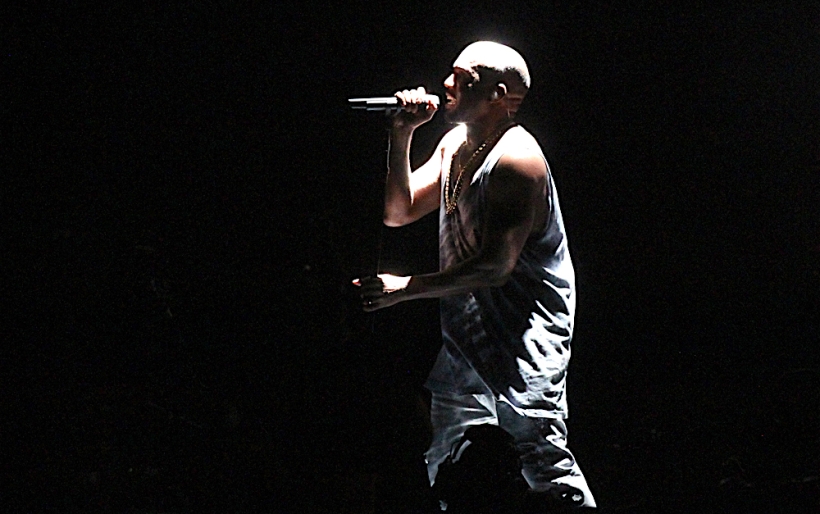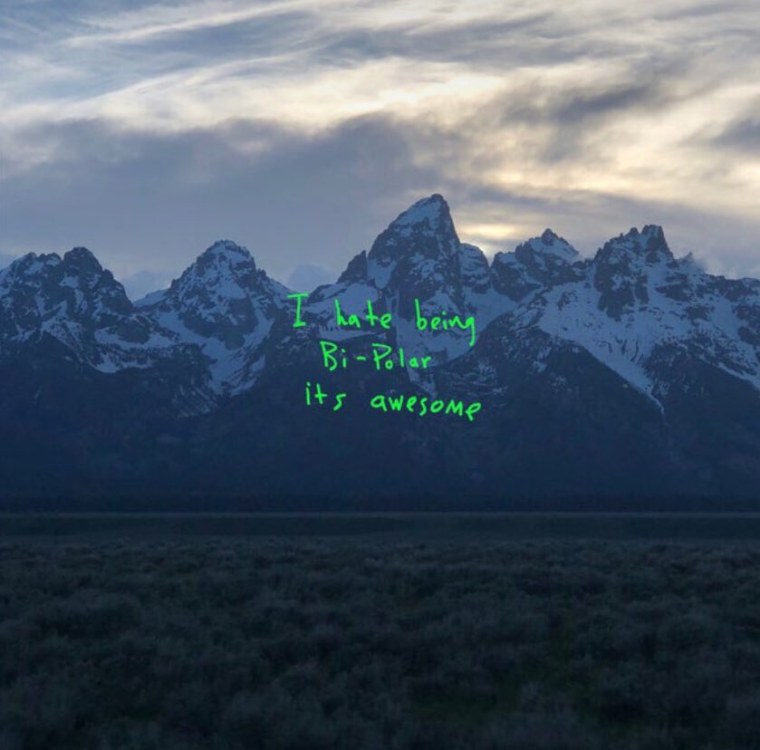
Kanye West | photo by John Vettese for WXPN
Cult of YE: The latest from an ever-complicated Kanye West unpacks fame, fear, remorse and more
“When you hear about slavery, that was 400 years. 400 years? That sounds like a choice!”
During a heated exchange that followed Kanye West’s surprising (and downright idiotic) proclamation that African Americans’ role in (or inability to break out of) chattel slavery was in fact “a choice,” TMZ reporter and Hip Hop podcaster Van Lathan scolded Kanye for this toxic and irresponsible statement. “Kanye, you’re entitled to your opinion, you’re entitled to believe whatever you want, but there are facts and real-life consequences to everything you just said. And while you are making music and being an artist and living the life that you’ve earned by being a genius, the rest of us in society have to deal with the marginalization that comes from the 400 years of slavery that you said, for our people, was a choice! Frankly, I’m disappointed, I’m appalled and brother…I am unbelievably hurt by the fact that you have morphed into something that, to me, is not real.”
When weighed against other hot topics that captured our instantaneous 24-hour news and entertainment cycle, this moment between Lathan and West is significant on a few levels. On one level, this confrontation represented an ideological collision between the working class and the rich/famous celebrity cult that Kanye has centered in both his artistic and social life. It can be argued that Kanye’s calculation that slavery was ultimately “a choice” for African Americans is a logical conclusion of the type of quasi-spiritual “law of attraction” self-help doctrine that many Hollywood celebrities traffic in (popularized by Rhonda Byrne’s “The Secret”). If you only believe in yourself more and think positively, you too can be rich, famous, successful, not a slave. This confrontation between Lathan and West was also significant because it created a brief space for open discussions on the systemic nature of racism. Lathan’s response to West concisely identified racism as an all-encompassing system of social, economic, political and legal oppression that exists as a historical continuum stretching from the past to the present day and NOT a mere set of prejudices and attitudes that play out on the individual/interpersonal level.
For the most part, the general public processed this discussion much in the way that we process any significant event that happens in the public sphere: through an endless stream of tweets and memes, on our favorite daytime talk shows and podcasts. Hate him or love him, the public ate it all up and it became clear (to me at least) that Kanye was and has been sacrificing himself on the altar of fame and his own personal mythology. To the man who once packaged himself as a starry-eyed college kid who just wanted to get on, all press is now good press, and it doesn’t matter if the world around him is moved by affection or outrage.
Many dismissed Kanye’s statements (coupled with his fervent support of Donald Trump) as a publicity stunt or a cry for attention. This may be true, but a close listen to his latest album, YE, and considering his past as an artistic and public figure, it becomes increasingly difficult to write Kanye’s public and artistic choices off as mere stunts designed to sell records. His eighth album to date, YE is graphic, joyous, and a horrifying glimpse into the mind of Kanye West. If the inspiration for his haunting and lovelorn classic 808’s & Heartbreaks were the women in his life and the love he couldn’t give/keep, YE’s muse, the album’s raison d’etre, is Kanye West himself, his own heart, mind and the celebrity that threatens to tear him apart.

The cover art for Kanye West’s YE, famously shot on his iPhone on the way to an album listening party in Wyoming | via The Fader
Opening with a swaying, filtered choral sample “I Thought About Killing You” is a cringe-inducing spoken word piece with a gorgeous, minimalist backdrop. “Today I thought about killing you. I contemplated. Pre-meditated murder. I think about killing myself and I love myself way more than I love you so……The most beautiful thoughts are always besides the darkest.” Somber, understated and fatalistic, the song trudges along for three minutes before it swings into a hyper future-trap groove that recalls West’s 2015 Paul McCartney collab “All Day.” In a genre that is almost obsessively self-referential, Kayne has built a career examining the intimate minutiae of his own mental health, art and celebrity, welding it all together into a harrowing personal mythology. The track “Yikes,” which melodically and lyrically doesn’t sound too dissimilar from the aesthetic of his previous album The Life of Pablo, finds West swinging between melancholy and amped-up ecstatic raps about…himself and his public persona. During that ill-fated TMZ interview, Van Lathan chastised Kanye for “morphing into something that is not real.”.Terrifyingly enough, there are many moments throughout YE where it appears that Kanye agrees with that sentiment.
“Shit could get….menacing, frightening, find help….sometimes, I scare…myself….myself….”
Clocking in at a brief 23 minutes (and seven tracks), and compared to the grandiose artistic statements like Graduation and My Beautiful Dark Twisted Fantasy that live in his discography, it would be easy to say that YE feels incomplete, even stunted. Considering the roll-out for Pablo, which found West adding tracks and new versions of songs AFTER the album’s official release, it is entirely feasible that YE as we are hearing it today could be added to and extrapolated on. For now, it would seem as though West is attempting to distill his musical ambitions into bite-sized proportions that suit the needs of our instant gratification culture and an increasingly fickle marketplace. “Ghostown” is a melodic rock anthem while “Wouldn’t Leave” is a gorgeous meditation on domestic/romantic commitment.
Referencing the infamous TMZ interview, Kanye pens a love letter to his wife for sticking by him through his emotional storms and public outbursts. “What was meant to be was meant to be, even if publicly I love the empathy…one and one is two, and you and me is infinity.” Although West dedicates some of the album’s attention to family, it is his own thoughts, desires and insecurities and how they are soothed and/or agitated by celebrity that are the central character(s) here. The album’s closer, “Violent Crimes,” is soft, yet horrific: a father reevaluating his relationship to women. At no point does West fully reconcile his role in our society’s misogynistic culture, he only reflects and recoils in fear that one day some man will abuse his young daughter in the way(s) that he himself has been abusive.
Musically, YE is not even close to being West’s strongest work, but it may be the most “Kanye”, Kanye album of all. On Pablo, he trolled fans who opine for his return back to his underground hip-hop roots with the quirky, a capella track “I Love Kanye.” “I miss the old Kanye, I miss the sweet Kanye, chop up the beats Kanye…” Far removed from the Judeo-Christian moral tension of his earlier work, Kanye seems to have fully embraced his role as a polarizing figure equally equipped to provide the public with moments, spectacle and art that is as likely to inspire and infuriate. We don’t know if “the old” / “Jesus Walks” era Kanye centered God/Spirit in his life and aesthetic, but we can conclude from his work that his drive, and his thirst for fame and validation were equally as important.
With YE, Kanye makes his choice for the moment, delving head first into this very specific and fucked up vision of a wounded but triumphant Black Masculinity. Frustratingly, this vision is equally rooted in a transcendent cultural genius that reimagines the possibilities of hip-hop while remaining anchored to West’s desperate, breathless obsession with celebrity…and the underlying fear of what that celebrity has turned him into.
